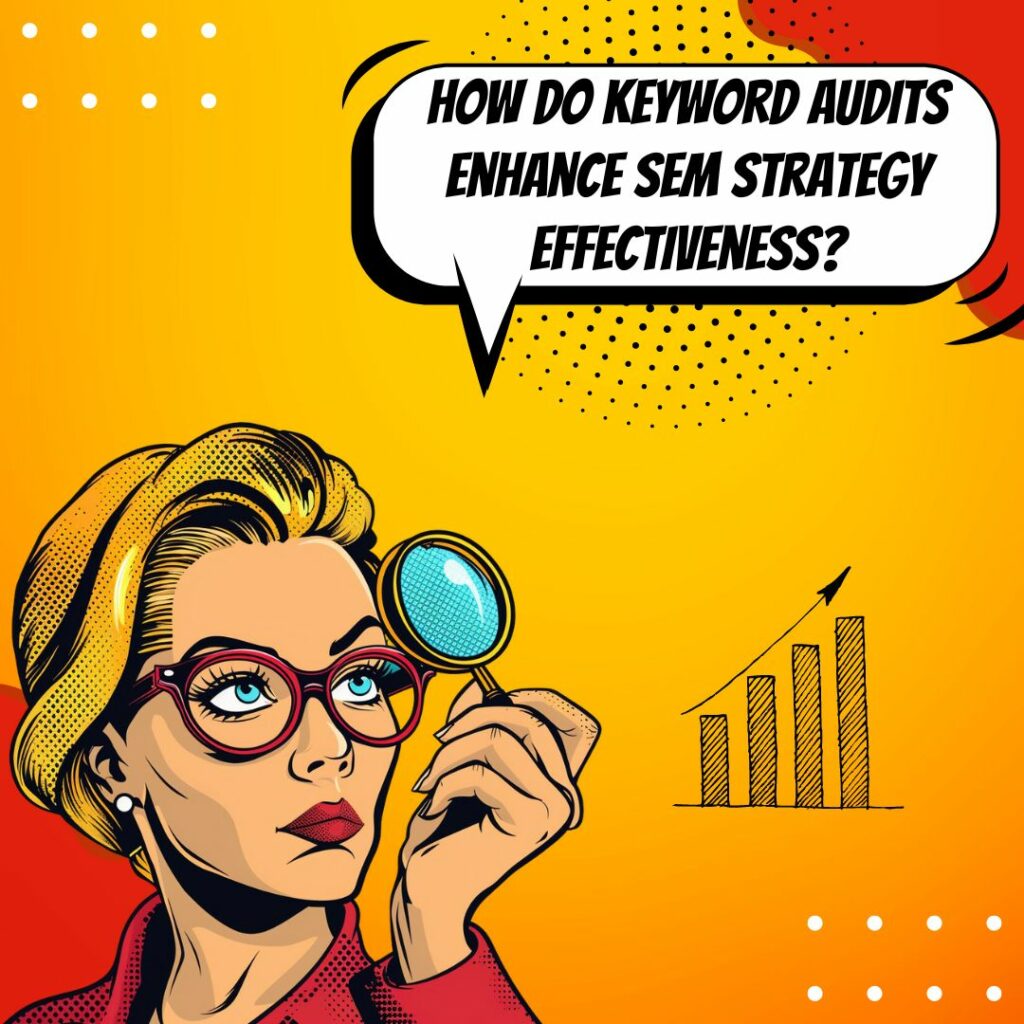Key Takeaways
✅ Conduct Thorough Keyword Research: Delve into the world of your audience with comprehensive keyword research. Tools like SEOptimer and AI Keyword Generator are your allies in uncovering terms your customers are actually searching for. We’re talking about words that capture intent and drive engagement, potentially increasing your site traffic substantially.
✅ Analyze Keyword Gaps: Pinpoint exactly where you can outmaneuver the competition with a keyword gap analysis. By identifying the crucial queries where your rivals are outperforming you, you can tailor your content to bridge these gaps. It's not just about meeting the bar; it's about setting a new one.
✅ Optimize On-Page Elements: This is where the rubber meets the road. Ensure elements like meta tags and URLs are not only clean and precise but also fully aligned with those golden keywords. With tools like Screaming Frog and SEMrush, you can swiftly squash any pesky site issues that might hamper your performance in search rankings.

Introduction
Have you ever wondered why your ads aren't raking in the revenue you expected? The answer might be hiding in plain sight: your keywords. With the digital world getting louder, conducting a keyword audit can be the difference between SEM success and obscurity. But where to begin? This article is your treasure map to the gold mine of effective keyword audits.
We’ll navigate through innovative perspectives, cutting-edge trends, and actionable solutions tailored to elevate your strategy and maximize your ROI. Get ready to uncover the secrets of transforming insights into action. Our guidance promises to shine a light on how you can enhance your SEM strategy and stand out in the bustling online marketplace. Keep reading—much like an explorer on the brink of a groundbreaking discovery, you're about to strike digital marketing gold.
Top Statistics
| Statistic | Insight |
|---|---|
| Click-Through Rates: The top three Google Search results receive about 54% of the clicks. | Securing a spot in the top results is critical for visibility and traffic; it's where more than half of users are clicking. |
| Cost-Per-Click (CPC): Retail remains competitive with moderate CPCs. | With retail CPCs being moderate, smart keyword selection can maximize returns on your ad spend. |
| Search Query Length: Keywords that are 10-15 words long get 1.76x more clicks than single-word queries. | Long-tail keywords can drastically improve click-through rates, indicating a shift towards more specific and targeted search queries. |
| Voice Search: Projections indicate that more than 75% of American households will own a smart speaker by 2025. | The rise of voice search demands an inclusion of conversational phrases in keyword strategies to meet future needs. |
| Mobile Optimization: Local searches on a mobile device are 88% more likely to result in a call or visit to a business within 24 hours. | Mobile optimization isn't just about looking good on a smartphone; it's about being readily accessible when customers are ready to act quickly. |
Why Keyword Audits Matter in SEM Strategy
Understanding the pulse of your target market starts with knowing what words and phrases they punch into search engines. That's where keyword audits enter the picture—they are the health checkups for your Search Engine Marketing (SEM) strategy. Peeling back the layers of your keyword list allows you to refine your ad campaigns, shrink needless spending, and bolster your chances of nabbing that coveted click, guiding more interested eyes to your offerings. It's no wonder that savvy marketers see keyword audits not just as a good practice, but an essential cog in the SEM machine. Regular audits ensure your strategy stays aligned with evolving search trends and consumer behavior. They help you stay competitive by identifying new opportunities and emerging keywords. Ultimately, consistent keyword audits drive more targeted traffic, increasing your overall ROI.
Understanding Your Current Keyword Landscape
To kick things off, let's talk tools and tactics. A slew of digital tools—from Google's own Analytics to other fancy data-crunching platforms—helps you unpack your current keyword stats. Diving into this data reveals the high performers, the underachievers, and everything in between. By parsing through the noise, you can pinpoint patterns—do certain words bring in the browsers, while others draw in the buyers? Recognizing these trends forms the backbone of an intelligent SEM approach. Additionally, understanding seasonal trends in keyword performance can help you time your campaigns more effectively. Evaluating keyword performance over different time frames can provide deeper insights into long-term patterns. This foundational analysis is crucial for setting realistic and achievable SEM goals.
Identifying and Prioritizing High-Value Keywords
Now for the treasure hunt—finding those keywords that have the magic mix of relevance, traffic, and achievable competition. Scouring the competition can shed light on gaps and opportunities in your own strategy. What’s more, grouping keywords into related clusters can reveal valuable insights into niche markets and sub-topics. Once you've highlighted your golden keywords, it’s time to arrange them not just by how shiny they are, but also by how realistically you can climb to the top of the search page with them. Prioritizing high-value keywords ensures your efforts are focused where they can have the most impact. Regularly revisiting and reassessing these priorities keeps your strategy dynamic and responsive. Incorporating user intent into your keyword prioritization can further enhance relevance and effectiveness.
Optimizing Ad Groups and Ad Copy for Better Performance
So you've identified the crème de la crème of keywords, what's next? You neatly sort them into ad groups that make sense—think of it as organizing your spice rack so you can cook more efficiently. And let's not forget the ad copy—the words that will either snag or bore your reader. Craft that copy to echo the wants and needs that bring your audience to search in the first place, leveraging those high-value keywords to create a resonant message. Regularly update your ad copy to keep it fresh and relevant. Use A/B testing to find the most effective messaging. Align your ad copy with the specific intent and expectations of your target audience for maximum engagement.
Monitoring and Refining Your Keyword Strategy
If managing keywords is a game, think of monitoring as keeping score. You've gone live with your ads, but the game's not over. Regularly checking in on how your keywords actually perform gives you invaluable intel. Swimming in data, you adjust, you refine, you experiment. And hey, why not play scientist with some A/B testing to really fine-tune your keyword concoctions? Such continual tweaking is what often separates the successful campaigns from the budget burners. Leveraging automated tools for real-time monitoring can streamline this process. Analyzing competitor performance can provide new insights and strategic adjustments. Continuous learning and adaptation are key to maintaining and improving SEM success.
Common Mistakes to Avoid in Keyword Audits
In the rush to attract more clicks and conversions, it's easy to trip up. One common misstep? Ignoring the potential of long-tail keywords—those more specific, often less competitive phrases that could attract the right kind of traffic. Or maybe you've overlooked the power of negatives—negative keywords, that is, which help filter out the traffic you don't want. Keeping these common pitfalls in mind ensures your keyword audit isn't just a routine check but a cornerstone of a thriving SEM strategy. Overlooking emerging trends can also be a costly mistake. Neglecting to update your keyword strategy regularly can lead to stagnation. Ensuring a comprehensive approach to keyword audits can drive more effective and efficient SEM results.
AI Marketing Engineers Recommendation
Recommendation 1: Prioritize User Intent Matching: Dive into your keyword audit by not just looking at volumes and competition, but also examining the intent behind searches. Modern data shows that 53% of clicks on Google go to the first organic result, which often best matches intent rather than simply keywords. Align your keywords with the type of content you create; whether users are seeking information, looking to make a purchase, or comparing products. This intent-focused audit will make your ads and content more relevant, leading to improved click-through rates (CTR) and conversions.
Recommendation 2: Leverage Long-Tail Keywords for Better Targeting: In the crowded space of search advertising, it's tempting to chase broad, high-traffic keywords. However, recent trends suggest that incorporating long-tail keywords, which are more specific and generally have less competition, can increase conversion rates by up to 2.5 times. This strategic tilt towards specificity can reduce your ad spend while increasing the quality of traffic to your site. Your keyword audit should identify these niche phrases that target customers further down the buying funnel.
Recommendation 3: Implement Advanced Tools for Continuous Learning: With ever-changing search landscapes, use advanced tools like Google's Keyword Planner or SEMRush for dynamic keyword audits. Platforms like these offer insights into seasonal trends, competitor keywords, and evolving search patterns. The investment in such tools often pays off; businesses leveraging advanced SEM technologies have seen a 10% average increase in ROI. Regular use ensures your keyword strategy remains adaptive and forward-looking, capturing shifts in consumer behavior and search algorithms.
Relevant Links
- Your Blueprint to Conquer the World of Chinese Digital Marketing
- Short-Video Marketing Mastery: Winning Strategies for Douyin and Kuaishou
- Video Marketing Secrets: Platforms and Content That Resonate in South Korea
- SEO for E-Commerce in South Korea: Winning Strategies Unveiled
- Future-Proof Your Marketing: Insights into Chinese Consumer Behavior
Conclusion
When it comes to fine-tuning your SEM strategy, the power of a thorough keyword audit cannot be underestimated. It's the linchpin that holds the potential to elevate ad performance, slash unnecessary expenditure, and drive up conversion rates. Imagine knowing precisely which words and phrases capture your audience's attention, doing away with guesswork and wastage. That's the advantage a keyword audit offers.
By understanding and analyzing your current keyword landscape, you identify not just words but windows into your customer's mind. Opting for the right tools and methodologies means unlocking a treasure trove of data, guiding you to the high-value keywords. And once discovered, the art of prioritizing them based on their relevance, search volume, and competition is key to harnessing their true potential.
The trick lies in not just selecting these words, but in knitting them into your ad groups and ad copy, crafting messages that resonate and compel. Change is the only constant, and within the dynamic realm of keywords, ongoing monitoring and refinement of your strategy are essential. It keeps you one step ahead, always relevant, and continuously engaging your target audience.
Consider the common pitfalls – like turning a blind, negligent eye to long-tail keywords or negative keywords – that could unravel your strategy. Knowledge and vigilance are your allies here, ensuring your keyword audit remains a beacon of success in your SEM campaigns. Let's not leave it at mere words. Embrace the nuggets of wisdom from this journey through -effective keyword audits and shift the gears of your SEM strategy. Are you ready to dive in, audit, and adapt for unbeatable results?
FAQs
Question 1: What is SEM?
Answer: SEM stands for Search Engine Marketing, it's all about getting your site to show up in search engines. Basically, it's a mix of things you don't pay for, like SEO, and ads that you do pay for.
Question 2: What is the purpose of an SEM audit?
Answer: Think of an SEM audit like a report card for your paid search stuff. It's checking out what you're doing to see where you can do better, get more bang for your buck, and make sure your ads make sense with what you're trying to sell.
Question 3: What are the key components of an SEM audit?
Answer: When auditing, you're diving into how your ads and campaigns are performing, checking out keyword game, what's bringing in viewers, and how landing pages are holding up.
Question 4: How do I identify relevant keywords for my SEM campaign?
Answer: Break out those tools like Google Keyword Planner or SEMrush. They help you discover keywords that a lot of people are looking for but not a lot of sites are using.
Question 5: What metrics should I track during an SEM audit?
Answer: You want to keep an eye on how much you're making back on your investment, how many people are doing what you want them to do after clicking your ad, and how much you're paying for each click or conversion.
Question 6: How often should I conduct an SEM audit?
Answer: You should do a deep dive every 6 to 12 months. But don't sleep between those times! Keep an eye on your search terms, test different ads, and stay on top of the game regularly.
Question 7: What are the benefits of conducting an SEM audit?
Answer: An SEM audit is like a strategic timeout. It spots where you're strong and where you're not, helps you get more from your budget, makes the experience better for your visitors, and aligns your online ad strategy with what your business wants to achieve.
Question 8: How do I prioritize recommendations from an SEM Audit?
Answer: Check what'll have the biggest impact, your confidence in whether it'll work, and how easy it is to do. This ICE score system helps you figure out what to tackle first.
Question 9: What tools are useful for conducting an SEM audit?
Answer: Get cozy with Google Ads, and Google Analytics, and pull in resources like SEMrush and other SEO buddies to gather and pick apart the data.
Question 10: How do I ensure consistency in my SEM campaigns?
Answer: Keep your account organized, name your campaigns so they make sense, and manage your ad groups like a pro. This helps keep everything on track and could up your quality score.
Academic References
- Bramer, W. M. (2018). A Systematic Approach to Searching: An Efficient and Complete Method to Develop Literature Searches. Journal of the Medical Library Association, 106(4), 531–541. This authoritative article introduces a methodical way to carry out literature searches. Bramer proposes an optimization process for search queries and adapting them across different databases, which is highly relevant for refining SEM strategies through meticulous keyword research.
- University of Leeds Library. Develop a Search Strategy. Retrieved from https://library.leeds.ac.uk/info/1402/search_strategy. The University of Leeds Library outlines a strategic approach to information retrieval which includes selecting search terms and utilizing precise phrase matching, essential for conducting powerful keyword audits in SEM strategies.
- Charles Sturt University Library. Developing a Search Strategy. Retrieved from https://library.csu.edu.au/research/search-strategies. This guide emphasizes on the plethora of search techniques which, when applied to SEM, can vastly improve keyword choice and overall search performance.
- University of Texas MD Anderson Cancer Center Library. Develop a Search Strategy. Retrieved from https://www.mdanderson.org/research/departments-labs-institutes/libraries/develop-search-strategy.html. This resource shed light on the synthesis of keywords and how to tailor strategies for various databases, a concept that mirrors the challenges faced in SEM keyword optimization.
- Monash University Library. Researching for Your Literature Review: Develop a Search Strategy. Retrieved from https://www.monash.edu/library/researchers/publishing/review-strategies. Monash University Library offers a step-by-step guide to creating search strategies, aligning closely with the scientific approach needed to undertake a holistic keyword audit for enhanced SEM results.












